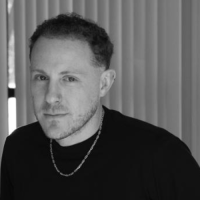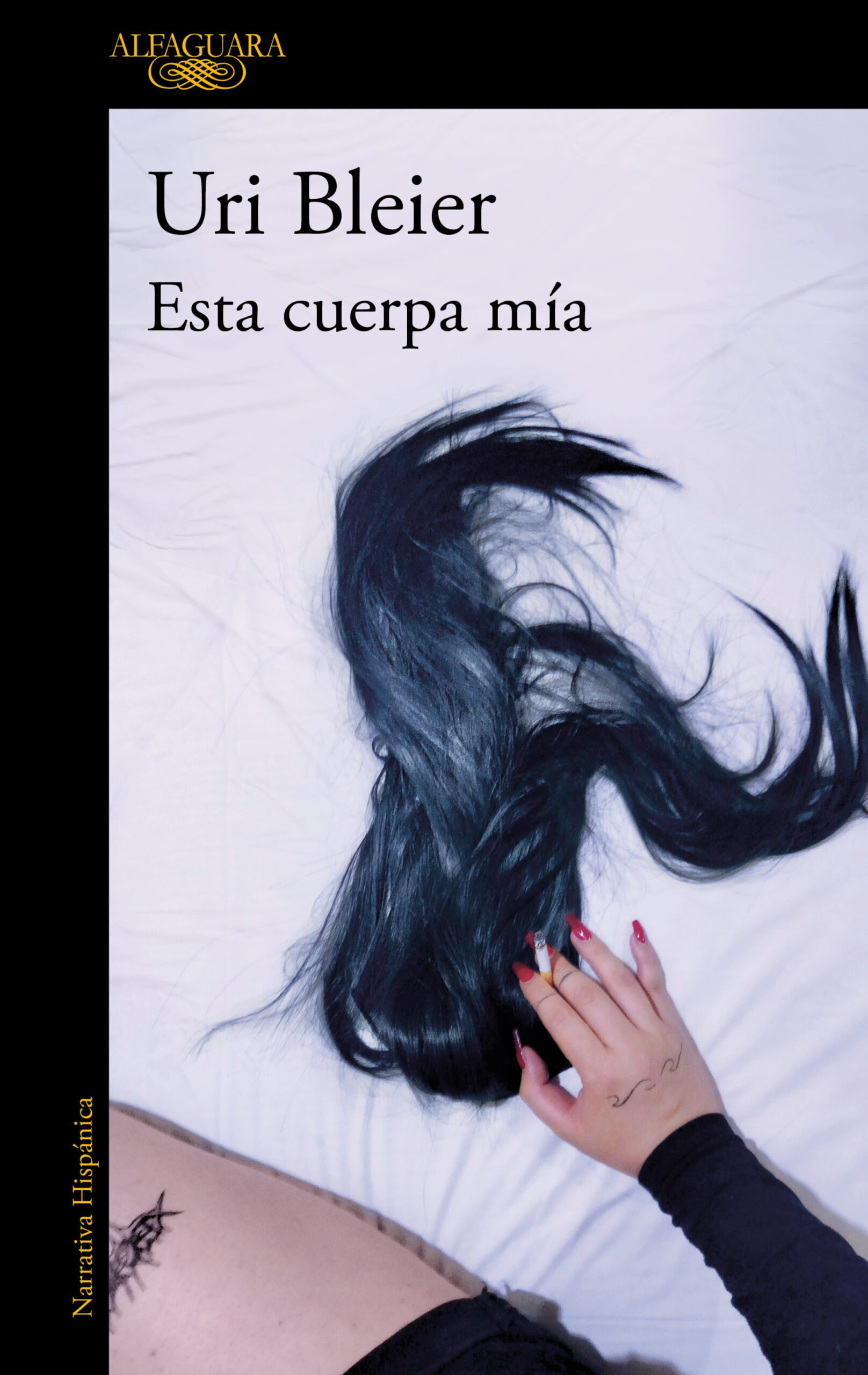Uri Bleier (Montevideo, 1989) was born a chilango, Jewish, and gay—each identity embraced with great pride. He barely graduated in International Business from Universidad Iberoamericana and later earned a master’s degree in Business and Football Administration from the Johan Cruyff Institute. As he often says, learning to love himself was no easy feat, but here he is. He worked for several years in the family business and, for some time now, has focused on unlearning a poor education to shape himself as a writer.
His first approach to the cultural world was through contemporary art. He participated in various group and two-person exhibitions in Mexico City, Havana (Cuba), and Lille (France), primarily showcasing installation and performance pieces. Some of these exhibitions include Autolike (La Bombilla Verde, Havana, Cuba, 2016), Emotionless (Proyecto Medellín, Mexico City, 2017), GIF (Galería El Oficio, Havana, Cuba), ¿Quién te crees tú? (Periférico, Mexico City, 2018), and Ola Cuba (Gare Saint Sauveur, Lille, France).
He lives between Mexico City and Havana and has devoted his best time to literature for several years now. Confidently, he wrote a first novel that ultimately proved of little use. Since then, he has participated in several long-term writing workshops, including a year with Mario González Suárez (Mexico), another with Sabina Urraca (Spain), four months with Jorge Volpi (Mexico), six months with Mercedes Halfon (Argentina), over a year with María Fernanda Ampuero (Ecuador), and two editions of Pablo Simonetti’s workshop at Universidad Finis Terrae (Chile).
From these experiences, he wrote a second novel that, according to his mentors, can already be considered a serious project, as well as Esta cuerpa mía (Alfaguara, 2024), which—according to his own false modesty—seems to be where his voice truly begins to intertwine with his literary obsessions and concerns.
Esta cuerpa mía was selected as part of the Mapa de las Lenguas initiative and will be published in May 2025 in over ten countries, including Spain, Argentina, Chile, and Colombia, among others.

Uri BLEIER

Uri Bleier (Montevideo, 1989) was born a chilango, Jewish, and gay—each identity embraced with great pride. He barely graduated in International Business from Universidad Iberoamericana and later earned a master’s degree in Business and Football Administration from the Johan Cruyff Institute. As he often says, learning to love himself was no easy feat, but here he is. He worked for several years in the family business and, for some time now, has focused on unlearning a poor education to shape himself as a writer.
His first approach to the cultural world was through contemporary art. He participated in various group and two-person exhibitions in Mexico City, Havana (Cuba), and Lille (France), primarily showcasing installation and performance pieces. Some of these exhibitions include Autolike (La Bombilla Verde, Havana, Cuba, 2016), Emotionless (Proyecto Medellín, Mexico City, 2017), GIF (Galería El Oficio, Havana, Cuba), ¿Quién te crees tú? (Periférico, Mexico City, 2018), and Ola Cuba (Gare Saint Sauveur, Lille, France).
He lives between Mexico City and Havana and has devoted his best time to literature for several years now. Confidently, he wrote a first novel that ultimately proved of little use. Since then, he has participated in several long-term writing workshops, including a year with Mario González Suárez (Mexico), another with Sabina Urraca (Spain), four months with Jorge Volpi (Mexico), six months with Mercedes Halfon (Argentina), over a year with María Fernanda Ampuero (Ecuador), and two editions of Pablo Simonetti’s workshop at Universidad Finis Terrae (Chile).
From these experiences, he wrote a second novel that, according to his mentors, can already be considered a serious project, as well as Esta cuerpa mía (Alfaguara, 2024), which—according to his own false modesty—seems to be where his voice truly begins to intertwine with his literary obsessions and concerns.
Esta cuerpa mía was selected as part of the Mapa de las Lenguas initiative and will be published in May 2025 in over ten countries, including Spain, Argentina, Chile, and Colombia, among others.
